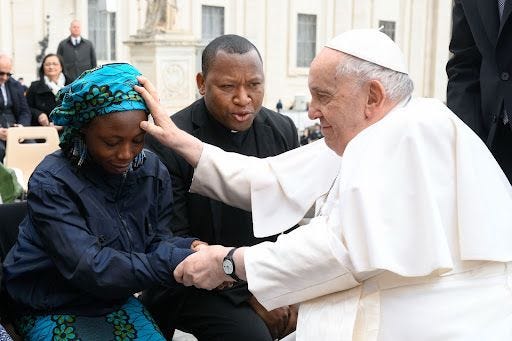'I have forgiven them' - Women kidnapped by Boko Haram met with Pope Francis
Two women who were held captive by terrorists in Nigeria told the pope that Catholics should pray for women who remain detained.
Pope Francis this month marked International Women’s Day by a meeting with two Nigerian women who had both been held captive by the Boko Haram terrorist network.

Janada Marcus, 22, spent more than a year in Boko Haram captivity.
Mariya Joseph, now a tee…
